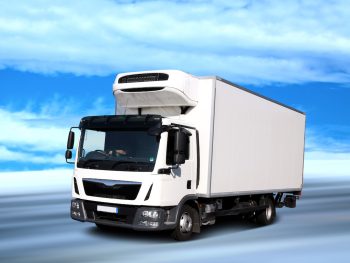Raising frozen food temperature by 3°C could slash cold chain emissions
Raising the standard temperature of most frozen food by three degrees could cut carbon emissions without compromising food safety or quality.

The project aims to redefine frozen food temperature standards to cut greenhouse gases and lower supply chain costs
That’s the finding of a new scientific study that’s being backed by transport and logistics firms involved in the cold chain.
Most frozen food is transported and stored at -18°C, a standard that was set 93 years ago and has not changed since. But a move to -15°C could make a significant environmental impact with no impact to consumers, the study found.
The experts, from the Paris-based International Institute of Refrigeration, the University of Birmingham and London South Bank University, among others, found that the small change could:
- Save 17.7 million metric tonnes of carbon dioxide per year; the equivalent of taking 3.8 million cars off the road annually
- Create energy savings of around 25 terawatt-hours (TW/h); equivalent to 8.63% of the UK’s annual energy consumption
- Cut costs in the supply chain by at least 5% and in some areas by up to 12%
The research is being backed by global logistics firm DP World, which is launching an industry coalition to explore the feasibility of this change, named ‘Join the Move to -15°C’.
This coalition aims to redefine frozen food temperature standards to cut greenhouse gases, lower supply chain costs and secure food resources for the world’s growing population.
The coalition has already been joined by leading industry organisations, including AJC Group; AP Moller – Maersk (Maersk) of Denmark; Daikin of Japan; DP World; the Global Cold Chain Alliance; Switzerland’s Kuehne + Nagel International; Lineage; Mediterranean Shipping Company (MSC) of Geneva; and Singapore-based Ocean Network Express (ONE).
Maha AlQattan, group chief sustainability officer at DP World, said: “The Move to -15°C will bring the industry together to explore new, greener standards to help decarbonise the sector on a global scale. Through this research, we can see how we can deploy accessible storage technologies in all markets to freeze food at sustainable temperatures, while reducing food scarcity for vulnerable and developed communities.”
Professor Toby Peters, University of Birmingham and Heriot-Watt University and director of the Centre for Sustainable Cooling, added: “Cold chains are critical infrastructure, vital for a well-functioning society and economy. They underpin our access to safe and nutritious food and health, as well as our ability to spur economic growth.”
He continued: “Cold chain infrastructure, and the lack of it, have implications for global climate change and the environment.”
DP World has made the research accessible to all and invited stakeholders, industry leaders and interested parties to show support for the campaign.
To find out more or join the initiative, please visit DP World’s website here.

